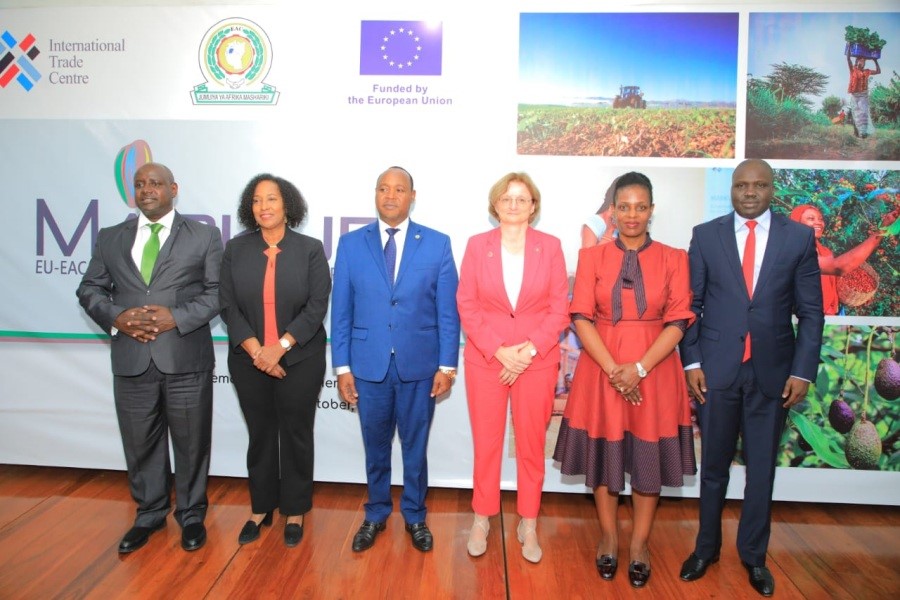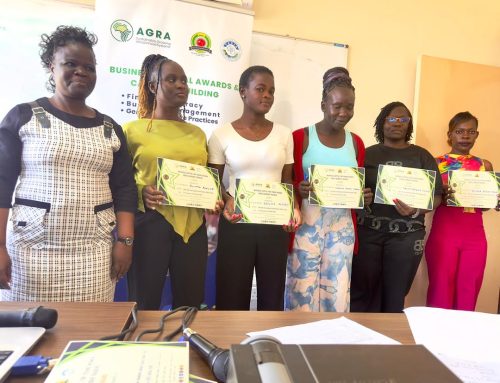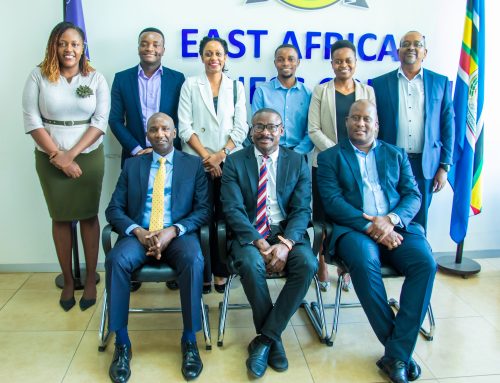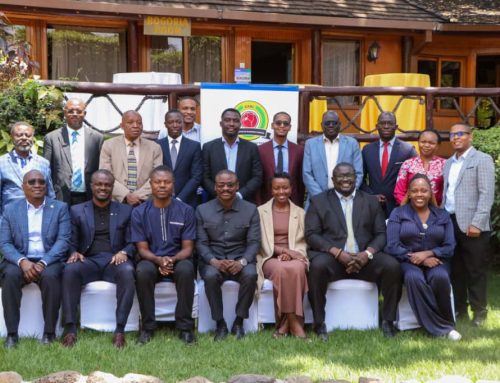3rd October 2023 Arusha, Tanzania – In a momentous event attended by key dignitaries, the East African Community (EAC) and the European Union (EU) officially unveiled the second phase of the EU-EAC Market Access Upgrade Programme (MARKUP II) in Arusha, Tanzania. This €40 million regional initiative, funded by the EU, is poised to unlock the full potential of agribusinesses within the EAC.
The launch event was graced by EAC Secretary General Hon. Dr. Peter Mathuki, H.E. Christine Grau, Ambassador of the European Union to Tanzania and the EAC, Pamela Coke-Hamilton, Executive Director of the International Trade Centre, and Mr. John Bosco Kalisa, CEO of the East African Business Council (EABC).
Hon. Dr. Peter Mathuki, EAC Secretary General, emphasized the importance of harnessing the EAC’s potential to produce for the world, particularly in the face of global challenges. He pledged to enhance the policy framework to facilitate intra-EAC and international trade.
H.E. Christine Grau highlighted MARKUP II’s mission to foster market linkages between the EU and EAC countries while reducing trade restrictions and barriers.
Pamela Coke-Hamilton underscored MARKUP II’s focus on upscaling Micro, Small, and Medium-sized Enterprises (MSMEs), especially those led by women and youth, in agriculture and horticulture. She also emphasized the EU’s steadfast partnership in this endeavor and the potential for the EAC to serve as a model for deeper integration across Africa.
Mr. John Bosco Kalisa, Executive Director of EABC, acknowledged the EAC’s remarkable growth, despite global challenges, as the fastest-growing economic bloc in Africa. He called for public-private partnerships to enhance the competitiveness of value chains, laying particular emphasis on coffee, tea, spices, gum Arabic, and other sectors.
MARKUP II will focus on priority sectors within the EAC, including avocado, cocoa, coffee, essential oils, French beans, gum Arabic, horticulture, leather, packaging, spices, and tea. It will prioritize activities such as processing, value addition, diversification, investment, and export linkages. A notable addition in MARKUP II is the standalone treatment of packaging, addressing unique challenges faced by MSMEs in the region.
Crucial to MARKUP II’s success will be the continued inclusion of women and youth in trade. A regional Steering Committee, chaired by the EAC Secretariat, will provide overall direction for the program.
Noteworthy achievements of MARKUP I include substantial growth in EAC exports, particularly coffee and avocado. Furthermore, the program empowered over 37,000 SMEs to become more competitive on international markets. In the first phase, more than 115 companies achieved a collective $16 million in sales and exports, while over 70 small businesses attracted $1 million in investment.
For more information about MARKUP II and its impact on the EAC’s agribusiness sector, please visit www.eacmarkup.org.
Notes to Editor
The East African Community (EAC) is a regional intergovernmental organization of seven Partner States: Burundi, the Democratic Republic of the Congo, Kenya, Rwanda, South Sudan, Uganda, and Tanzania, with its headquarters in Arusha, Tanzania.
The Delegation of the European Union to Tanzania and the East African Community plays a vital role in relations between the EU and Tanzania, as well as the East African Community. The EU has launched the Global Gateway, a new European strategy aimed at strengthening links in digital, energy, and transport sectors, and enhancing health, education, and research systems across the world. This strategy is being jointly implemented under the Team Europe banner, encompassing EU institutions and EU Member States.
The International Trade Centre (ITC) is the joint agency of the World Trade Organization and the United Nations. ITC assists SMEs in developing and transition economies, making them more competitive in global markets, and contributing to sustainable economic development within the frameworks of the Aid-for-Trade agenda and the United Nations’ Sustainable Development Goals. For more information, visit www.intracen.org.





